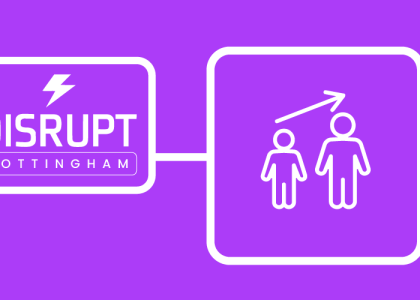Ageism at work: Building age-inclusive workplaces

Have you ever seen an older colleague passed over for promotion because “they won’t adapt to new tech,” or a younger one sidelined for being “too inexperienced”? Then you’ve witnessed ageism in the workplace. Perhaps you’ve even experienced it yourself.
Ageism affects employees across the generations, and while most of us have heard of older workers missing out on opportunities, younger ones are often excluded too. Although it isn’t always intentional, it has serious consequences for both your people and your organisation.
Let’s look at the challenges older and younger workers face, and what leaders can do to build an inclusive workplace where everyone thrives.
The older generation's perspective
Common challenges
Older employees often report being overlooked for new opportunities. One survey revealed that 62% of professionals over 55 said they had been passed over for a promotion in the past year, compared with only 37% of professionals under 30. At the same time, 8 out of 10 older workers feel their chances of getting a new role are lower due to their age.
So what’s behind this? Some employers assume that older workers can’t keep up with new technology, or that they won’t embrace change. When you underestimate someone’s ability, you’re likely to offer fewer development opportunities or neglect to tell the employee what they need to do to progress in the first place.
In a survey of over 5,700 professionals, over a third of over-55s said they were “not at all aware” of what steps would get them a promotion, compared with just 12% of Gen Zs. For some older workers, there’s even pressure (whether subtle or explicit) to retire early.
The emotional impact
Feeling undervalued is draining, especially after decades of contribution. When the most experienced employees are seen as “past it”, it inevitably affects their self-worth and motivation. This disengagement may even lead to someone leaving the workforce sooner than they’d planned.
What older employees bring to your organisation
Most older workers bring tremendous value. Not only do they have many years’ worth of technical knowledge, but they’ve probably honed their soft skills too. They’ve learnt how to communicate effectively in different situations, handle conflict, and adapt to countless changes. And they’ve built an impressive network along the way.
Long-tenured employees are usually a treasure trove of company information too. They often know how things work when no one else does – priceless when the team needs to get things done quickly.
Finally, older employees’ breadth of experience brings a valuable perspective to most projects, and their wisdom may translate into better decision-making when a crisis comes along.
Rather than relegating older employees to the sidelines, then, you could reap the rewards of trusting them with new responsibilities or asking them to mentor younger colleagues.
The experience of younger workers
The reality for newcomers
Younger generations frequently face the opposite issue. Their ideas may be dismissed as naïve, and their succinct CV used as proof they aren’t ready for responsibility. As a result, they’re more likely to be assigned tactical tasks rather than strategic ones they can get their teeth into.
Stereotypes of those in their 20s include entitlement, laziness, and a lack of loyalty that leads to job-hopping… and all of this could influence an employer’s decision to keep major projects or leadership roles out of reach.
Over a third of 16-24-year-olds believe they’ve faced bias during the hiring process, citing age as the leading factor. On top of this, 93% of young employees report negative treatment due to their age, including being undervalued, being patronised, and missing out on promotions.
The toll on young employees
Not being taken seriously can leave younger workers feeling invisible. If you believe your contributions don’t matter, or that leadership doubts your commitment, it’s likely to erode your confidence. And when you’re burning with fresh ideas but no-one’s willing to listen, it’s hard to resist cynicism. You might even feel you need to leave your job to have your voice heard.
The value of new recruits
Younger workers may not have decades of industry experience, but what they do bring is just as valuable: fresh thinking, innovation, and digital fluency. Where longer-serving colleagues might rely on familiar practices, digital natives often introduce new tools and highlight emerging trends that others aren’t aware of.
Less experience also means fewer ingrained habits, less bias towards “the way things have always been done,” and more openness to experimentation. All of this keeps your organisation nimble and provides the fresh perspective your team has been crying out for.
The wider impact of ageism
While older and younger workers encounter different forms of ageism, they share common frustrations. Both generations face exclusion from important projects, decisions, and job roles, leaving them feeling undervalued. Both want respect and recognition without having to prove themselves constantly. And both deserve opportunities to grow.
But while individuals bear the brunt of ageism, your organisation shares the consequences too. When you write off employees because of their age, you’re throwing away skills, ideas, and energy you’re already paying for. Every time someone feels excluded because of their age, they become less inclined to share their talents and more likely to walk out the door.
At the same time, sidelining younger and older employees denies your business access to the wide range of perspectives at your disposal. Focusing all your resources on one age group stifles innovation and productivity as well as morale.
There could also be legal implications to ageism in the workplace. Age is one of the characteristics protected by the Equality Act, meaning it’s against the law to discriminate against someone based on how old they are.
Whether you mean to or not, excluding someone from an opportunity because of their age could be considered discrimination. As an employer, you could even be held liable for discrimination by another employee, so take steps to ensure workers of all ages are treated fairly by everyone in the workplace.
How you can avoid ageism in the workplace
So, what practical steps can you take to avoid discrimination and give everyone the opportunities they deserve, regardless of their age?
Promote intergenerational mentoring
Pair older and younger employees in mentoring relationships where knowledge flows both ways. Reverse mentoring, where younger workers can help older ones with digital skills or the latest trends, can be powerful as well. Not only does mentoring develop skills and awareness that help both new and experienced employees reach their potential, but it builds mutual respect that strengthens overall organisational culture.
Value skills, not age
Ensure hiring and promotion policies assess people on capabilities and outcomes, not just length of service. For example, when considering someone for a role, focus on the abilities they can demonstrate as well as their potential, not on how long they’ve been in a similar role.
Train managers to avoid unconscious bias
Bias often operates under the radar, and some of the worst offenders might not even know they’re doing it. Train managers to recognise bias when it crops up, both in themselves and in others, and to challenge it quickly.
Make development opportunities accessible to everyone
Ensure opportunities for training and development are open to all age groups, and that everyone has a clear progression plan. Don’t just assume that older employees no longer want to learn or that younger ones don’t feel ready to progress
Creating an age-inclusive workplace
As we’ve seen, everyone benefits when different generations collaborate. Championing contributions from every age group boosts innovation and morale, helps you hold on to talent, and lowers your risk of legal action.
So take an honest look at your policies and practices. Ask your people if they ever experience ageism in the workplace. And if the top jobs are dominated by those in the middle of their careers, find out why so you can take action.



